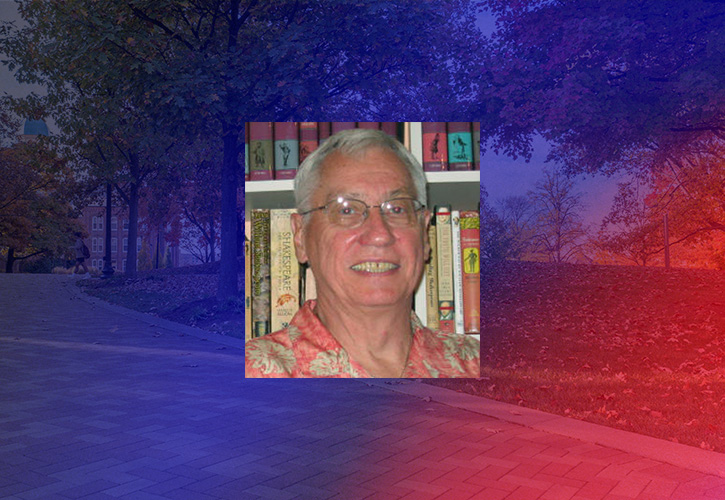College of Arts and Sciences Newsroom

In Memoriam: Lawrence Ulrich
By Dave Larsen
Lawrence Ulrich, a philosophy professor at the University of Dayton for nearly 40 years and a central faculty member in a 1960s heresy trial on campus, died May 3. He was 84.
Ulrich specialized in medical ethics and taught philosophy at UD from 1964 to 2003, when he retired at the rank of professor emeritus. He served as UD Department of Philosophy chair from 1985 to 1993. He received the University’s 1982 Professor of the Year Award for teaching excellence. In 1984, he was one of eight finalists for the National Professor of the Year Award, sponsored by the Council for Advancement and Support of Education and the Carnegie Foundation.
A pioneer in online education, Ulrich continued to teach online courses for UD from his home in Palm Springs, California, after he retired from teaching on campus.
As a professor and department chair, Ulrich was a proponent of an ambitious, humanities-based general education curriculum launched in 1993 at UD, known as the Humanities Base. A precursor to the current Humanities Commons program, it was a set of four first-year courses — English, history, philosophy and religious studies — that raised basic questions about what it means to be human.
The Humanities Base was intended to give students the ability to make connections across academic disciplines to “overcome that fragmentation that is an inevitable part of the modern world,” Ulrich said in a 1993 UD media release.
In October 1966, Ulrich was one of four UD faculty members charged by a colleague with teaching “doctrines contrary to the teaching magisterium of the Church” in a letter to then-Archbishop of Cincinnati Karl J. Alter. That December, following an investigation that became known as the UD “heresy” trial, the four professors were declared innocent.
“The outcome with the bishop and the University was the ability to teach the texts of Rene Descartes and Karl Marx to undergraduate students,” said John Inglis, professor emeritus of philosophy. “It was the official breakthrough in the U.S. at Catholic colleges and universities that allowed faculty in philosophy to teach texts of formally, technically banned philosophers like Marx.”
The trial was the topic of a book by Mary Jude Brown, Heresy in the Heartland: The Controversy at The University of Dayton, 1960-67, published in June 2022 by Catholic University of America Press. Brown retired from UD in 2013 as College of Arts and Sciences associate dean for financial, information and data analysis.
Ulrich was a scholar of Pierre Teilhard de Chardin, the French Catholic philosopher who incorporated elements of evolutionary theory into his works, said Bill Marvin, principal lecturer of philosophy. Ulrich was teaching Teilhard de Chardin at UD, which wasn’t permissible at time, leading in part to his appearance at the trial.
“The Omega Point statue in front of the Roesch Library is inspired by Chardin’s concept of a point toward which evolution tilts,” Marvin said. “This is a symbol of the important contribution Larry made to the intellectual life of the University. I think about Larry every time I view the sculpture.”
Ulrich was born Feb. 10, 1939, in Dayton to Lawrence Ulrich and Magdalena Brehm Ulrich. He held a master’s degree in philosophy from Catholic University of America in Washington, D.C.; a master’s in education from Xavier University in Cincinnati; a doctorate in philosophy from the University of Toronto; and a master’s of education/counseling from the University of Dayton.
He wrote the book The Patient Self-Determination Act: Meeting the Challenges in Patient Care, published in 1999 by Georgetown University Press.
He is survived by his wife, Bonnie Cloer of Wausau, Wisconsin; daughters Laura Mariani of Dayton and Rachel Bemis of Asheville, North Carolina; five stepchildren; and grandchildren, nieces and nephews.
A memorial service for Ulrich will be held at 4:30 p.m. Monday, June 26, in the Chapel of the Immaculate Conception on UD’s campus. Memorial donations may be made to Aspirus Comfort Care and Hospice Services, Wausau, Wisconsin.
“Larry will be missed by the many people whose lives he touched, and those upon whom he had such a positive influence,” said Kurt Mosser, associate professor of philosophy.
